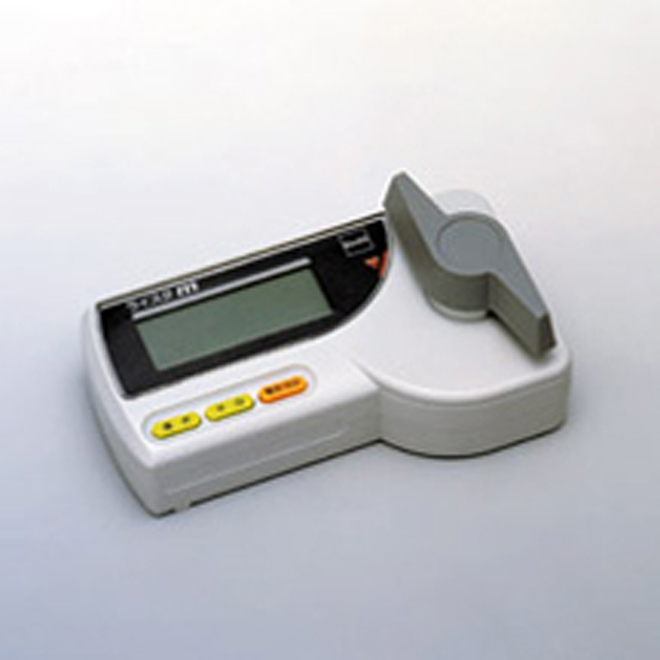The Ultimate Guide to Moisture Meters: A Comprehensive Summary and How They Can Save You Cash
In the world of building upkeep, building, and different markets, the value of accurately determining dampness degrees can not be overemphasized. Moisture meters act as important tools in identifying and monitoring moisture web content in materials, aiding in protecting against costly problems and guaranteeing the top quality of items. Understanding the subtleties of different sorts of moisture meters, their applications, and the potential cost-saving benefits they supply can be a game-changer for organizations and specialists alike. Discovering exactly how these gadgets can not only enhance procedures however likewise add to financial cost savings is a journey worth beginning on.
Kinds of Moisture Meters
One common kind is the pin-type dampness meter, which gauges the electric resistance between two pins put into a product. Pinless dampness meters, on the various other hand, use electromagnetic sensing unit plates to check a bigger area without causing damages to the material's surface area.

Moreover, there are also specialty dampness meters created for certain materials like soil, hay, or grain. These meters supply accurate dampness analyses customized to the distinct residential or commercial properties of the product being checked. Infrared moisture meters gauge the thermal residential or commercial properties of a material to determine its wetness content non-invasively, making them helpful for applications where pin or pinless meters may not appropriate. Understanding the various kinds of dampness meters offered can help industries pick one of the most proper tool for their specific wetness dimension requirements.

Advantages of Using Moisture Meters
Wetness meters offer indispensable benefits in properly keeping track of and assessing moisture degrees in diverse products and environments (Moisture Meter). One of the primary advantages of utilizing wetness meters is the prevention of possible damage caused by excess moisture. By detecting and attending to high moisture degrees at an early stage, dampness meters help to prevent mold and mildew growth, rot, and structural damages in structures, saving both money and time on repairs. Furthermore, dampness meters help in making certain the quality of products during building or manufacturing procedures. By properly gauging moisture material, these tools assist preserve the integrity of wood, drywall, concrete, and other materials, decreasing the risk of problems or failures.
In addition, making use of dampness meters can lead to enhanced energy effectiveness. In agricultural setups, moisture meters play a crucial function in maximizing plant returns by enabling farmers to monitor soil dampness degrees and make informed irrigation decisions.
How to Select the Right Dampness Meter
Selecting the proper wetness meter involves thinking about vital elements such as product compatibility, measurement variety, and calibration precision. When choosing a wetness meter, it's necessary to guarantee that the meter appropriates for the details material you will certainly be screening. Various materials have differing electric residential properties that can affect wetness readings, so picking a meter made for your material is critical for precise outcomes. Additionally, take into consideration the measurement series of the moisture meter. Ensure that the meter can spot wetness degrees within the variety required for your applications. Calibration precision is one more essential variable to keep in mind. Opt for a dampness meter with trustworthy calibration to guarantee exact and regular analyses. Some meters may require periodic calibration modifications, so understanding the calibration procedure is very important. By very websites carefully evaluating these elements, you can pick a dampness meter that fulfills your requirements and provides exact wetness dimensions for your jobs.
Proper Techniques for Wetness Meter Usage

Price Savings With Wetness Meter Applications
Exactly how can the calculated usage of dampness meters lead to considerable cost financial savings across various markets? In the farming sector, wetness meters help in determining the optimal time for harvesting plants, preventing over-drying or excess wetness that can affect the final item's top quality.
Similarly, in construction, wetness meters assist avoid costly problems by spotting dampness degrees in structure products, such as timber or concrete, which can cause architectural problems otherwise dealt with quickly. By recognizing problem locations early on, contractors can take restorative actions to avoid extensive repair services or substitutes, inevitably saving time and money.
Furthermore, in the food processing sector, dampness meters are essential for monitoring product quality and guaranteeing compliance with safety guidelines. By precisely gauging moisture content in food, producers can stop perishing, keep quality, and decrease waste, resulting in substantial price savings. In general, the tactical application of moisture meters is a valuable investment that can bring about significant expense decreases and improved effectiveness throughout different markets.
Final Thought
Finally, moisture meters are useful devices for measuring and discovering dampness levels in different products. By utilizing the ideal wetness meter and complying with appropriate techniques, individuals can effectively prevent pricey damages brought on by excess wetness. Buying a top quality dampness meter can cause considerable cost financial savings in the future by determining possible problems early on and enabling timely removal. Inevitably, dampness meters are vital tools for keeping the stability and durability of products and frameworks.
Moisture meters offer as indispensable devices in spotting and monitoring moisture web content in materials, aiding in protecting against costly damages and guaranteeing the quality of items. Infrared wetness meters gauge the view thermal residential or commercial properties of a product to identify its moisture content non-invasively, making them beneficial for applications where pin or pinless meters might not be ideal.Dampness meters supply invaluable advantages in precisely evaluating and keeping an eye on dampness degrees in varied products and atmospheres. In agricultural setups, wetness meters play a vital duty in optimizing crop yields by enabling farmers to keep an eye on dirt wetness degrees and make educated irrigation choices.In final thought, dampness meters are important tools for determining and detecting dampness levels in different products.